Even without an armed conflict, Russia’s Crimean adventure has set it on a course of protracted collision with the West.
The scene in the Kremlin’s opulent St George’s Hall on March 18 could have come straight from a Soviet TV newsreel of the Party Secretary General raging about machinations of the “evil West”.
As Russian President Vladimir Putin went through his list of slights and grievances, which Russia has ostensibly suffered at the hands of the US and its European allies, his speech was interrupted by raucous applause of the smiling and enthusiastic audience, mostly comprised of government officials, loyal civil servants and religious figures.
The pep rally reached its crescendo when he announced his government had agreed to “honour the will” of the Crimean voters in the March 16 referendum and allow the peninsula to join its “historic motherland”.
An imminent war?
Shortly afterwards, news broke that a Ukrainian soldier in Crimea was killed and the Admiral of Ukraine’s Navy stationed on the peninsula was reportedly detained and being interrogated.
Meanwhie, Russian troops continue massing near Ukraine’s eastern borders, prompting Ukraine’s government to announce that it was putting its army on high alert, to protect its borders from a potential invasion by its big neighbour.
Do these ominous developments portend an imminent war? If by “war” we mean a full-blown armed conflict between Russia and Ukraine, then the answer is probably no: The political (not to mention economic) cost to Putin of waging war on a brotherly Slavic people would be too high and the risk of across-the-board sanctions crippling for Russia’s economy.
If our definition of “war” includes a civil armed conflict between Ukraine’s central government and its Eastern (predominantly Russian-speaking) areas, with Russia’s operatives continuing to foment unrest in the latter, then it is a possibility, unless the interim government in Kiev acts quickly and decisively to diffuse the tension in the East.
To do that, it must start by granting the Russian-speaking areas an autonomy as part of a would-be federalisation scheme, restoring the Russian language’s official status, and ruling out joining NATO.
In the address to the country’s citizens in the Eastern areas, which acting Prime Minister Arseniy Yatseniuk delivered yesterday in Russian, he signaled his government’s full readiness to make the necessary concessions to prevent Ukraine’s geographical disintegration.
As he made it clear early on in his reign, Vladimir Putin considers the break-up of the Soviet Union and the resulting demise of the bipolar world as the “greatest geopolitical catastrophe” of the 20th century.
He has been aggrieved with the expansion of NATO to the former Soviet republics of Estonia, Latvia and Lithuania, despite the informal promise to the contrary, which George Bush was said to have given to Mikhail Gorbachev after the fall of the Iron Curtain.
It is precisely the threat of Georgia’s inclusion into NATO that sent Russian troops in 2008 to “liberate” Georgia’s restive republics of Abkhazia and South Ossetia and force the alliance to swear off extending membership to Georgia. Having suffered no serious consequences for that aggression, the Kremlin felt emboldened to finally make a stand in Ukraine (which Putin has publicly dismissed as an “artificial” country) during the protests on Kiev’s “Maidan”.
It had been Moscow’s poor judgement to throw its lot with the disgraced former President Victor Yanukovich, whose rapaciousness in looting Ukraine’s state coffers was unprecedented even by Ukraine’s notoriously low standards.
The Kremlin pulled out all stops in its propaganda efforts to paint the protest movement in Maidan as a Western/neo-fascist plot rather than an expression of Ukrainians’ outrage at the government’s corruption and a yearning for a European orientation.
It then found itself in the uncomfortable position of defending the universally despised Yanukovich as a legitimately elected leader of Ukraine who, it has argued, must be allowed to return and resume his duties.
A desperate act?
Snatching Crimea so quickly – though it may seem like a desperate act, has nonetheless served several important functions for Putin. Internally, it has allowed him to restore his citizenry’s flagging morale and rouse nationalist fervour by “not accepting the outcome of Maidan lying down” and reclaiming one of Russia’s “historical” lands (it was transferred to Ukraine by the Soviet Premier Nikita Khrushchev in 1954). It has also consolidated, at least for now, Russia’s political and business elites.
As the Russian President stated unequivocally in his address on Tuesday, those Russians who dare express disagreement with his “Crimean reclamation” project would be considered traitors (such as the tens of thousands of Muscovites who came out onMarch 15 to protest Crimea’s annexation).
Externally, it has served its purpose by forcing NATO to de facto forswear extending membership to Ukraine in the foreseable future, though it may have achieved the side effect of bringing about the alliance’s internal consolidation and a renewal of its raison d’etre.
While Russia’s outright invasion of Ukraine’s Russian-speaking areas cannot be ruled out (how many pundits predicted the Crimean scenario amid all the hoopla of the opening of the Sochi olympics?), it is unlikely for several reasons. First of all, Ukraine’s East, although predominantly Russian-speaking and with deeply-held pro-Russian sympathies, is nowhere near to matching Crimea in its enthusiasm to join Russia.
The public sentiment there is split on the issue, while its oligarchs – including Ukraine’s richest man Rinat Akhmetov – have proclaimed their support of Ukraine in its present borders.
Secondly, Vladimir Putin has already largely achieved his aforementioned goals, at least for the time-being. Crimea is effectively lost to Ukraine and the East will – at the very least – have obtained a great degree of autonomy from Kiev and can be expected to continue enjoying its close economic, political and cultural ties with Moscow.
By maintaining (and, likely, increasing) his influence in the East, Putin will use it as a Damoclean sword over the government in Kiev, keeping it in a state of existential dread and careful not to antagonise Moscow unnecessarily.
Indeed, one can detect the said influence in Arseniy Yatseniuk’s announcement that although he intended to sign political agreements with the EU at its upcoming summit, he will abstain from signing the free trade agreement. The reason stated: it might have a negative impact on Ukraine’s industrial East, which has long depended on trade with Russia for its prosperity.
Crimea’s burdens
Finally, it can be expected that Putin will – in the near future at least – limit his appetite for territorial expansion to Crimea, given the territory’s specifics and its burden on Russia’s economy, already finding itself in a precarious state due to the adverse market reaction to the peninsula’s invasion and the threat of deep sanctions by the US and the EU.
The peninsula lacks many vital resources, having to import most of its fresh water and electricity, and will thus be a much greater financial burden on Russia than Abkhazia and South Ossetia combined.
Then there is the pesky problem of the Crimean Tatars, who had settled the peninsula long before Russians’ arrival: Their memory of being deported by Stalin to Uzbekistan in 1940s is still fresh. Ever since being allowed to resettle in Ukraine following Ukraine’s independence and to enjoy a high degree of autonomy, they have been staunch supporters of Ukraine’s sovereignty over Crimea.
Just yesterday, the body of a missing ethnic Crimean Tatar, a known pro-Ukrainian activist, was found, bearing signs of torture. Unless Moscow establishes a rapprochement with the Crimean Tatar community and does it quickly, it may be facing unrest there for years to come.
Even absent an armed conflict, though, Russia’s Crimean adventure has set it on a course of protracted collision with the West and alienation from much of the rest of the world. As countries diversify their energy supplies and new sources of energy become available, Russia risks losing its favorite method of persuasion – gas blackmail – and with it, its ability to coerce others into its anti-American, anti-Western camp.
Its alliance will be limited to occasional bedfellows like Cuba, Nicaragua, and Venezuela and pariah states like North Korea.
Peter Zalmayev is director of the Eurasia Democracy Initiative (EDI), an international non-profit organization dedicated to the promotion of democracy and rule of law in post-Communist transitional societies of Eastern and Central Europe, the Caucasus and Central Asia.
Origin – aljazeera.com

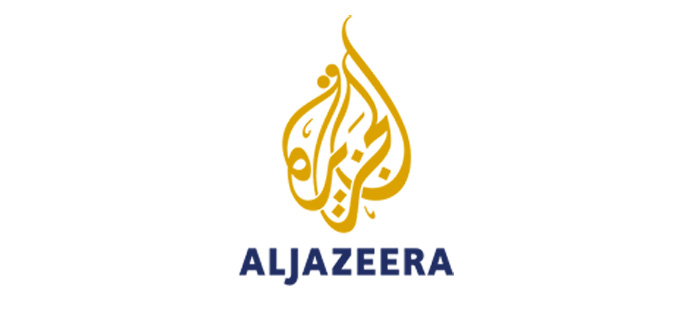
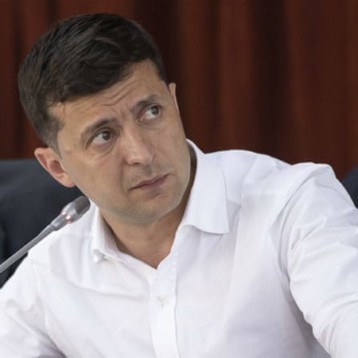
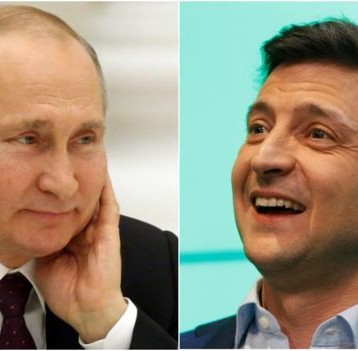
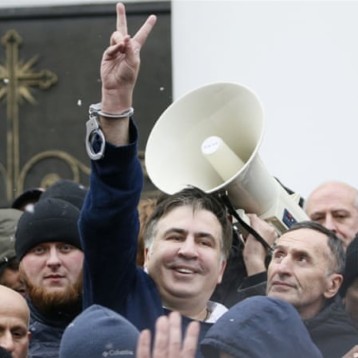
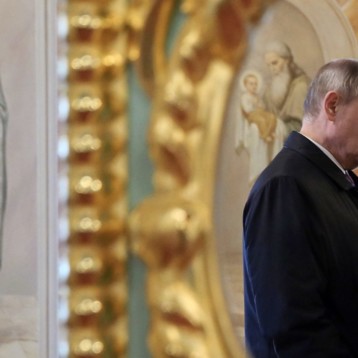

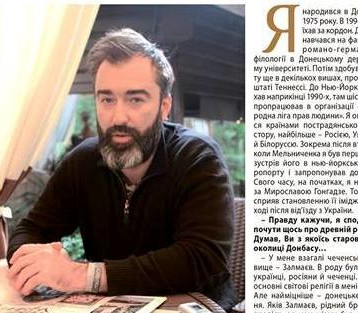
You must be logged in to post a comment.